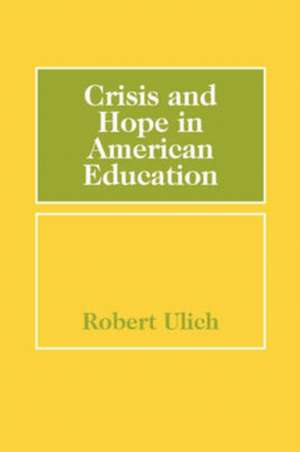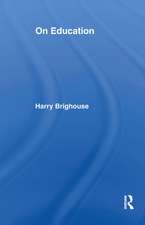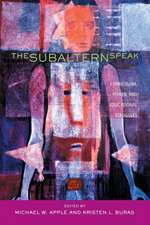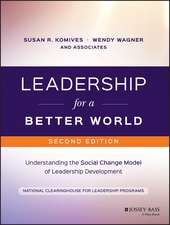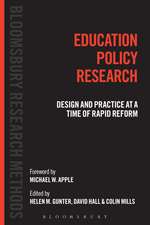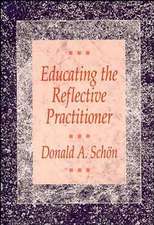Crisis and Hope in American Education
Editat de Robert Ulichen Limba Engleză Paperback – 15 ian 2008
| Toate formatele și edițiile | Preț | Express |
|---|---|---|
| Paperback (1) | 396.91 lei 6-8 săpt. | |
| Taylor & Francis – 15 ian 2008 | 396.91 lei 6-8 săpt. | |
| Hardback (1) | 1000.27 lei 6-8 săpt. | |
| Taylor & Francis – 2 aug 2017 | 1000.27 lei 6-8 săpt. |
Preț: 396.91 lei
Nou
Puncte Express: 595
Preț estimativ în valută:
75.96€ • 78.47$ • 63.22£
75.96€ • 78.47$ • 63.22£
Carte tipărită la comandă
Livrare economică 25 martie-08 aprilie
Preluare comenzi: 021 569.72.76
Specificații
ISBN-13: 9780202309842
ISBN-10: 0202309843
Pagini: 256
Dimensiuni: 152 x 229 x 15 mm
Greutate: 0.32 kg
Ediția:1
Editura: Taylor & Francis
Colecția Routledge
Locul publicării:Oxford, United Kingdom
ISBN-10: 0202309843
Pagini: 256
Dimensiuni: 152 x 229 x 15 mm
Greutate: 0.32 kg
Ediția:1
Editura: Taylor & Francis
Colecția Routledge
Locul publicării:Oxford, United Kingdom
Cuprins
1: The Disappointment; 2: The Dilemmas of Modern Secondary Education; 3: The School of the Future; 4: Philosophy of Secondary Education; 5: On the Education of Teachers; 6: Higher Education; 7: Adult Education; 8: Summary
Descriere
This book evaluates the educational system of the United States from schools for the young up to universities and various forms of adult education. It is not confined to the evaluation of intellectual achievement. Rather it tries to arrive at some judgment as to whether schools help people acquire the degree of maturity necessary for participation in the work of a nation called upon to assume world responsibilities.
Education, rightly conceived, is the process by which a growing person, according to his individual capacity, is prepared to understand himself, his place in society, his relation to the universe, and to act upon this understanding. A nation, to whatever extent it can afford to do so, should help future generations to strive for such achievements. But although this obligation is generally accepted by the American citizen, its practical requirements are still not fully understood.
A classic soon after its original publication, this book is timelier today than ever. The author convincingly articulates the view that all our efforts at raising the intellectual and moral standards in our high schools are doomed to failure unless we boldly pair the right subject with the right talent. He demonstrates how we can achieve this without rejecting the precious heritage that is our tradition of free secondary schooling for all who can profit by it: his goal is nothing less than the creative combination of quality and justice in education.
Ulich's prescriptions for education are bold and prac1/4tical. The boldness is best characterized by his contro1/4versial suggestion that the emotional sphere serves as the means of unifying the highly diverse American society. We see the influence of modern theory and its disenchantment with the merely intellectual theory as a basis for understanding, communication, and meaning. The institution that Ulich proposes is an "ideal" one, but it is described in considerable detail. Its buildings, facilities, curricul
Education, rightly conceived, is the process by which a growing person, according to his individual capacity, is prepared to understand himself, his place in society, his relation to the universe, and to act upon this understanding. A nation, to whatever extent it can afford to do so, should help future generations to strive for such achievements. But although this obligation is generally accepted by the American citizen, its practical requirements are still not fully understood.
A classic soon after its original publication, this book is timelier today than ever. The author convincingly articulates the view that all our efforts at raising the intellectual and moral standards in our high schools are doomed to failure unless we boldly pair the right subject with the right talent. He demonstrates how we can achieve this without rejecting the precious heritage that is our tradition of free secondary schooling for all who can profit by it: his goal is nothing less than the creative combination of quality and justice in education.
Ulich's prescriptions for education are bold and prac1/4tical. The boldness is best characterized by his contro1/4versial suggestion that the emotional sphere serves as the means of unifying the highly diverse American society. We see the influence of modern theory and its disenchantment with the merely intellectual theory as a basis for understanding, communication, and meaning. The institution that Ulich proposes is an "ideal" one, but it is described in considerable detail. Its buildings, facilities, curricul
